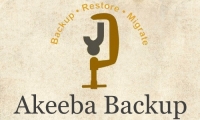Blog Categories
Popular articles
- Installing, configuring, and using OpenVPN server Centos 6.6
- Module Installation php libssh2 on CentOS 6.x
- Mirror CentALT repository for CentOS 5.x - 6.x
- Attention! Critical vulnerability in all versions of Joomla 1.5, 2.5,3 (CVE-2015-8562)
- S.M.A.R.T - monitor the status of hard drives in Centos sending notifications to Email
Basket of services
Company news
- Thursday, 24 December 2015: Merry Christmas and Happy New Year!
- Monday, 20 April 2015: Accepting payments through payment system Webmoney and Z-Payment restored
- Saturday, 18 April 2015: Unavailable accepting payments via Webmoney and Z-Payment
- Thursday, 05 March 2015: To order new services are available - DNS hosting and secondary DNS server
- Wednesday, 25 February 2015: Added new ways to pay for services
Recent blog posts
-
Attention! Critical vulnerability in all versions of Joomla 1.5, 2.5,3 (CVE-2015-8562)
-
Mirror CentALT repository for CentOS 5.x - 6.x
-
Mozilla after Google announced its intention to abandon the valuable work with sites that do not use https
-
Critical vulnerability in Magento
-
Warning! XSS vulnerability in WordPress and a set plug-ins.
Attention! Critical vulnerability in all versions of Joomla 1.5, 2.5,3 (CVE-2015-8562)
Tuesday, 15 December 2015 10:42A few days ago in all versions of Joomla (1.5, 2.5, 3) found critical (0-day) vulnerability that allows an attacker to successfully attack the sites running Joomla absolutely all versions of the Exploitation of the vulnerability of RCE ("remote code execution") and, as a result, to gain complete control over the site. The attack is made possible due to insufficient filtering of variables in the HTTP request (the field HTTP_USER_AGENT, HTTP_X_FORWARDED_FOR, REMOTE_ADDR) and their subsequent use in the session object, and query a database.
Mozilla after Google announced its intention to abandon the valuable work with sites that do not use https
Wednesday, 06 May 2015 21:13The company Mozilla, which is the developer of the browser Firefox, in his blog said phaseout of support with sites using a secure protocol is not HTTP. In the first place not on a secure site will not work all the new functions of the browser, as well as those functions that browser developers deem dangerous.
Recall, earlier made a similar statement and the company Google, adding that the sites using HTTPS will be ranked higher in the SERPs is not secure sites.
This is due to the fact that the HTTP protocol is outdated in terms of security and the entire transmitted between the user and site information can easily be intercepted and read by third parties.
Thus the global giants have decided to gradually fully translate the entire Internet on a secure protocol HTTPS. Therefore, it is possible that in the near future by opening a website in your favorite browser you'll see a warning that your site is not secure .
As a platform for e-commerce Magento, which works on the basis of a huge number of online stores found critical vulnerability, allows an attacker to execute arbitrary PHP-code on the server and get full access to the data online store, including information on the customer's credit card. The attack can be accomplished without committing authentication. The problem is present in the base of the engine Magento and appears in the default configuration. The problem was identified in February and has already been fixed in the update SUPEE-5344, while for non-disclosure agreement about the vulnerability made public only now.
Warning! XSS vulnerability in WordPress and a set plug-ins.
Thursday, 23 April 2015 11:31April 20, 2015 was publicized critical vulnerability allows an XSS attack on a website that is subject to a huge number of plugins for Wordpress.
The vulnerability is related to the misuse of the developers of plugins and features add_query_arg remove_query_arg, which were not well documented in the documentation Wordpress, plugin developers that introduced misleading and resulted in the feasibility of the attack.
Specialists of the company Sucuri were tested about 300 of the most popular plugins Wordpress, many of them are affected, it was confirmed. We will publish the list below. Developers data plug-ins already released an update covering the vulnerability. However, we want to note that this list is not complete, it is clear that much more vulnerable plug-ins, just as long as they might, no one tested.
Critical Vulnerability in Joomla 2.5 - 3.3x (CVE-2014-7228)
Wednesday, 01 April 2015 21:53September 30, 2014 it became known about the vulnerability in the software company Akeeba. The vulnerability allows remote upload shell, with no rights in the system. Are affected as the products themselves Akeeba: Akeeba Backup, Akeeba Solo, Akeeba CMS Update, Akeeba Admin Tools, and WARNING: all versions of Joomla 2.5 to version 2.5.27, and 3 to version 3.3.5.
The fact that the standard Joomla component updates using scripts of Akeeba. And Akeeba Joomla and released their updates, covering this vulnerability, but they did not consider it a critical vulnerability, and so many people do not pay much attention to it.
Indeed, a hacker could exploit this vulnerability only when you make a backup copy of your site, or are upgrading the site. That is, it is only a few seconds of which the hacker must still somehow and learn.














